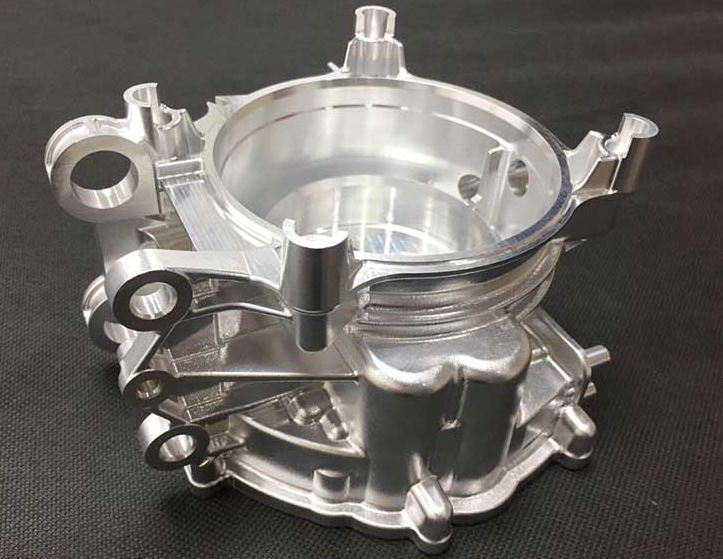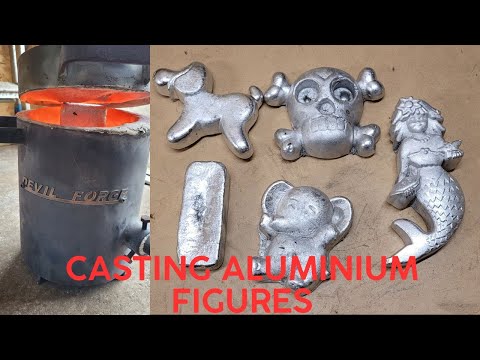See This Report on Stahl Specialty Company
See This Report on Stahl Specialty Company
Blog Article
The 10-Minute Rule for Stahl Specialty Company
Table of ContentsGet This Report about Stahl Specialty CompanyAn Unbiased View of Stahl Specialty CompanyGetting My Stahl Specialty Company To WorkExcitement About Stahl Specialty CompanyThe Of Stahl Specialty CompanyThe Facts About Stahl Specialty Company Uncovered

If you're developing a steel product, you've likely considered using aluminum as the base product. It has a high strength-to-weight ratio, good rust resistance, good formability, and visual charm. These factors have actually resulted in its increased appeal in recent times. Pure light weight aluminum has restricted applications, so it is often incorporated with other components, such as silicon, magnesium, and manganese to develop alloys.
Different aspects and quantities produce a wide array of desirable physical and chemical buildings. And the Light weight aluminum Association (AA), based in The United States and copyright, has produced requirements that regulate aluminum alloys' make-up, residential or commercial properties, and classification. There are 2 kinds of aluminum alloys wrought and cast. Factory employees create these alloy enters different ways, which substantially influences their characteristics.
Get This Report about Stahl Specialty Company
Cast light weight aluminum alloys are made by thawing pure light weight aluminum and incorporating it with various other metals while in fluid kind. The mix is poured right into a sand, die, or financial investment mold. After solidification, the steel is eliminated from its mold. At this phase, it is in either its last type or as a billet or ingot for further processing.

160.0 represents a cast with a minimum of 99.60% light weight aluminum. The 4th digit, which follows the decimal factor, specifies if the alloy is a casting (xxx. 0) or an ingot (xxx. 1). Wrought light weight aluminum alloys also start by integrating liquified aluminum with other metals. In comparison to cast alloys, nonetheless, they are formed into their last shape with procedures such as extrusion, rolling, and flexing after the steel has actually strengthened right into billets or ingots.
There are lots of small distinctions between functioned and cast aluminum alloys, such as that cast alloys can include extra substantial amounts of various other metals than functioned alloys. The most noteworthy difference in between these alloys is the manufacture process through which they will go to supply the last product. Other than some surface area therapies, cast alloys will exit their mold and mildew in virtually the precise solid form desired, whereas functioned alloys will certainly go through several modifications while in their solid state.
If you assume that a functioned alloy may be the very best for your task, take an appearance at a few of our posts that describe even more regarding specific wrought alloys, such as Alloy 6061 and Alloy 6063. On the various other hand, if you believe a cast alloy would certainly be better for you, you can discover more concerning some cast alloys in our Alloy 380 and Alloy 383 articles (coming quickly).
The Ultimate Guide To Stahl Specialty Company
When selecting an aluminum factory for your production demands, it's important to study numerous factors. Among one of the most crucial elements to consider is the experience and proficiency of the foundry. Foundries in Missouri. Selecting a shop who has the best expertise of the light weight aluminum casting process, and the portfolio to reveal for it, aids to have an effective outcome for your project
Having the experience and market expertise to craft your spreadings for optimal production and high quality results will certainly streamline the job. Making aluminum castings requires a facility set of processes to achieve the ideal outcomes. When selecting a new aluminum factory to companion with, guarantee they have comprehensive market experience and are educated concerning all aspects of the aluminum spreading procedure: design, production, material analysis, and item screening.
The foundry should also have a tested record of providing extraordinary products that meet or exceed customer expectations. Quality control ought to also be at the top of your list when picking an aluminum factory. By collaborating with a certified factory that follows the requirements for quality assurance, you can protect the integrity of your item and ensure it satisfies your specs.
By picking a business that provides solutions that satisfy or exceed your product needs, you can be certain that your task will certainly be finished with miraculous accuracy and efficiency. navigate here Specific light weight aluminum shops focus on specific types of making procedures or casting techniques. Different parts need various production techniques to cast light weight aluminum, such as sand spreading or die casting.
The Basic Principles Of Stahl Specialty Company
Pass away casting is the name given to the process of developing complex steel components via usage of mold and mildews of the element, also referred to as passes away. The process makes use of non-ferrous metals which do not contain iron, such as aluminum, zinc and magnesium, because of the desirable residential properties of the steels such as low weight, higher conductivity, non-magnetic conductivity and resistance to deterioration.
Pass away spreading manufacturing is fast, making high manufacturing levels of elements very easy. It generates more parts than any other process, with a high level of accuracy and repeatability. To learn even more about die spreading and die spreading products used in the procedure, continued reading. There are three sub-processes that fall under the category of die casting: gravity pass away spreading (or irreversible mold spreading), low-pressure die casting and high-pressure die casting.
Despite the sub-process, the die spreading process can be damaged down right into 6 actions. After the purity of the alloy is checked, passes away are produced. To prepare the needs casting, it is vital that the dies are tidy, to make sure that no deposit from previous productions remain. After cleaning, the ejection lubrication is applied to the die to guarantee a smooth release.
How Stahl Specialty Company can Save You Time, Stress, and Money.
The pure metal, additionally referred to as ingot, is added to the furnace and maintained the molten temperature of the metal, which is after that moved to the shot chamber and injected into the die. The stress is then kept as the metal solidifies. Once the steel strengthens, the cooling process starts.
(https://www.figma.com/design/5dtta9biYAvurKhKjAAp7p/Untitled?node-id=0-1&t=AoovjzyjwBUdKG93-1)
The thicker the wall of the component, the longer the cooling time due to the amount of indoor metal that additionally needs to cool. After the part is completely cooled, the die halves open and an ejection system pushes the element out. Complying with the ejection, the die is shut for the following injection cycle.
The flash is the additional material that is cast during the procedure. Deburring gets rid of the smaller items, called burrs, after the trimming process.
Stahl Specialty Company - Truths

Zinc is one of the most previously owned alloys for die spreading due to its lower price of raw materials. Its corrosion resistance additionally enables the components to be lengthy enduring, and it is one of the much more castable alloys due to its reduced melting point.
As discussed, this alloy is one of one of the most frequently used, yet manufactures will, sometimes, select aluminum over zinc as a result of aluminum's production advantages. Light weight aluminum is extremely affordable and one of the more functional alloys. Aluminum is made use of for a number of various products and industries anything from home window frameworks to aerospace products.
Report this page